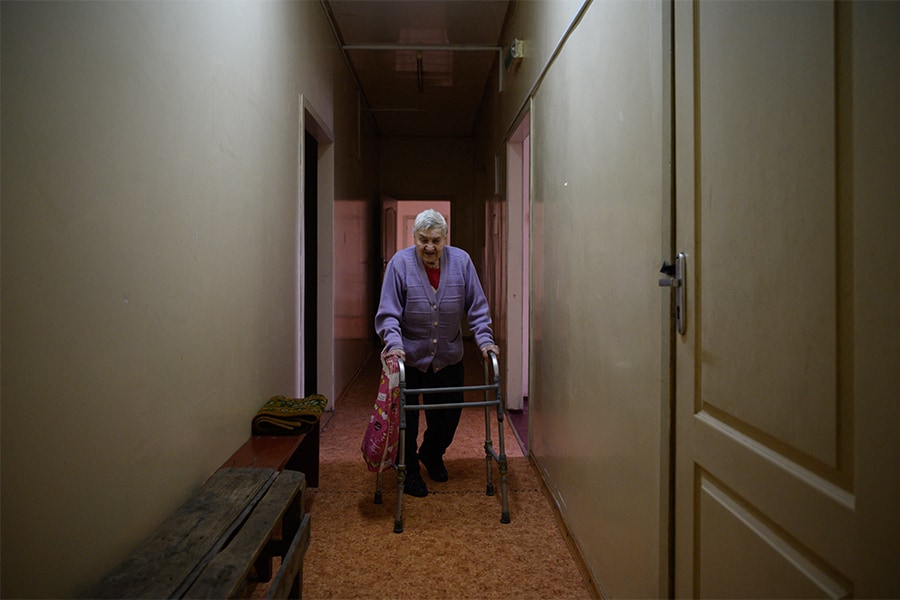
'This is my third war': Ukraine's elderly are conflict's forgotten victims
Citing Ukrainian government figures, Handicap International estimates that 13,000 elderly Ukrainians or people with disabilities have arrived in the wider Dnipro region since Russia launched its invasion in late February
 An elderly woman walks in a hallway at the Mercy House shelter for people in need, on the outskirts of Dnipro on April 15, 2022. The elderly are "often forgotten, very vulnerable" during conflicts, says Federico Dessi, the director for Ukraine of the NGO Handicap International, which is providing equipment and financial support to the Dnipro shelter. (Credit: Ed JONES/ AFP)
An elderly woman walks in a hallway at the Mercy House shelter for people in need, on the outskirts of Dnipro on April 15, 2022. The elderly are "often forgotten, very vulnerable" during conflicts, says Federico Dessi, the director for Ukraine of the NGO Handicap International, which is providing equipment and financial support to the Dnipro shelter. (Credit: Ed JONES/ AFP)
Dnipro, Ukraine: Shuffling down the corridor of a refugee centre in Ukraine with his grey tracksuit sleeve rolled to his shoulder, 71-year-old Vladimir Lignov reveals the remains of a severed limb he says he can still feel.
"It was on the 21st of March, I went out to smoke. Then a shell hit. I lost my arm," he says, recalling the strike on his home in Avdiivka, an industrial hub in east Ukraine and a military priority for invading Russian forces.
Now in relative safety in the central Ukraine city of Dnipro the former train conductor is among what aid workers say is a particularly vulnerable segment of the population — the elderly.
In the Dnipro maternity hospital, hastily opened up to accommodate people fleeing Moscow's forces, Lignov is struggling to come to terms with what happened and why — not to mention what might come next.
Medical staff at the Myrnorad hospital near ongoing fighting and where Lignov was treated after the strike say he should return for treatment in a week.







